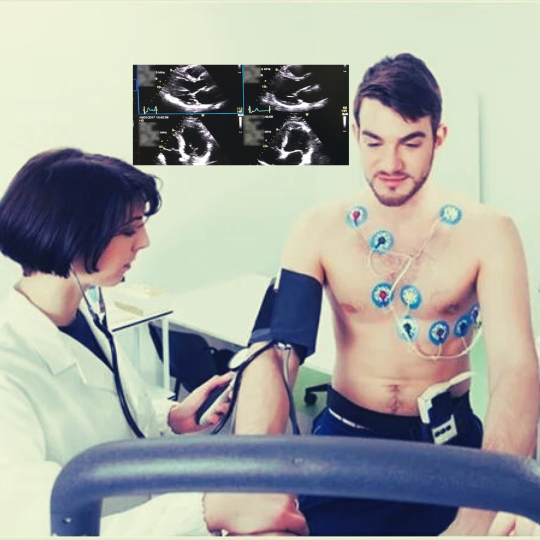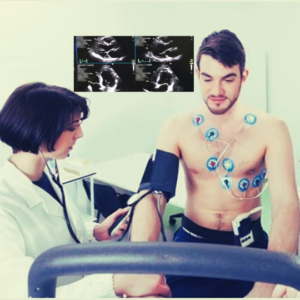- +91 83103 67685
- info@drameetoswal.com
- Basavanagudi
Stress Echocardiography Test in Bangalore | Because some cardiac conditions only show up during stress

Stress Echocardiography Test in Bangalore | Some heart problems especially those regarding the arteries that supply blood to your heart muscle (coronary arteries) – occur only while you are doing some physical activity. Your cardiologist might suggest a stress echocardiogram to check for coronary artery problems. They are carried to unravel the hidden complications that your heart might be having. The kind of problems that only show themselves when your heart has more work as compared to a resting position.
Done using static bicycle or pharmacologically with dobutamine infusion.

In the test, you will be monitored for heart rate, blood pressure, ECG, echocardiogram, and symptoms. A cardiologist may recommend a stress test to find the following problems-
This test is performed in those patients who cannot run on a treadmill.
If these problems are encountered, the cardiologist will then discuss the best medical procedure possible according to your condition.
It is used when the cardiologist wants to know how well can your heart handle work. It is to reveal the conditions and complications that might be latent or hidden in the resting echocardiogram test. That way the cardiologist will get a clear understanding of your situation and impart medical treatment accordingly.
A patient taking the test will be:
Although they make use of the same stressing techniques, the methods of calculating and monitoring are different. An ECG will detect only electrical activity in the heart and an echocardiogram will detect the abnormality in heart muscle or structure of the heart. An ECG uses the concept of capturing impulses of the beating heart and whereas an echocardiogram uses ultrasound waves to make echoes of the heart.
It accurately finds out about heart conditions, if any and then the cardiologist will suggest further mitigations to be taken. Also, it can tell how much exercise or strain capacity is suitable for your heart. This way you can minimise the risk of heart attack or heart failure. Some advantages can be:
The actual exercise can range from Minutes. Including everything from prep time to final discussions, the process can take up to 1 hour depending on your cardiologist.
Not at all. Healthy people who are at a considerable little risk. Medical personnel are present in case something unusual happens during the test. And patients with indications of fatigue are handled with extra care.
Subscribe our newsletter for latest information in the field of cardiology
WhatsApp us